#Presbyterian Church (USA)
Text
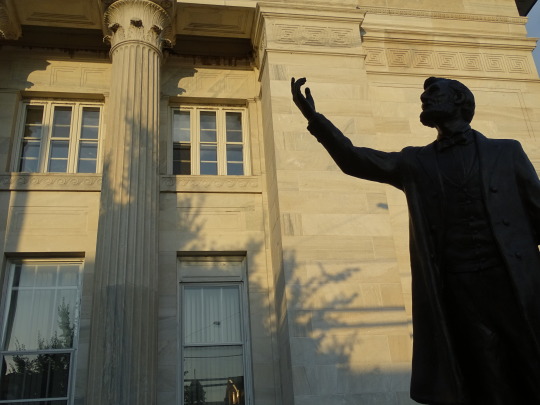
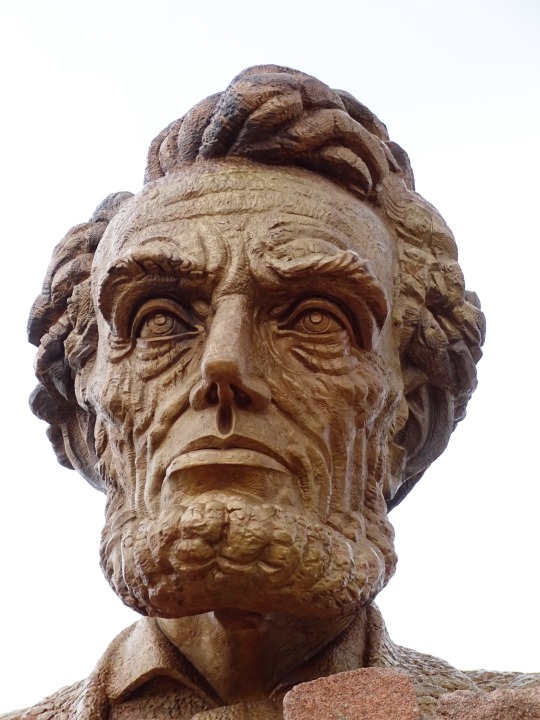
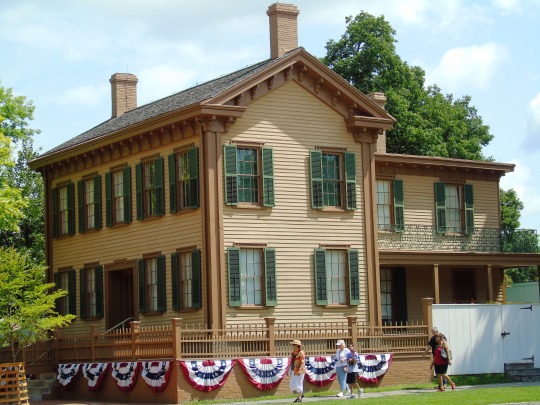
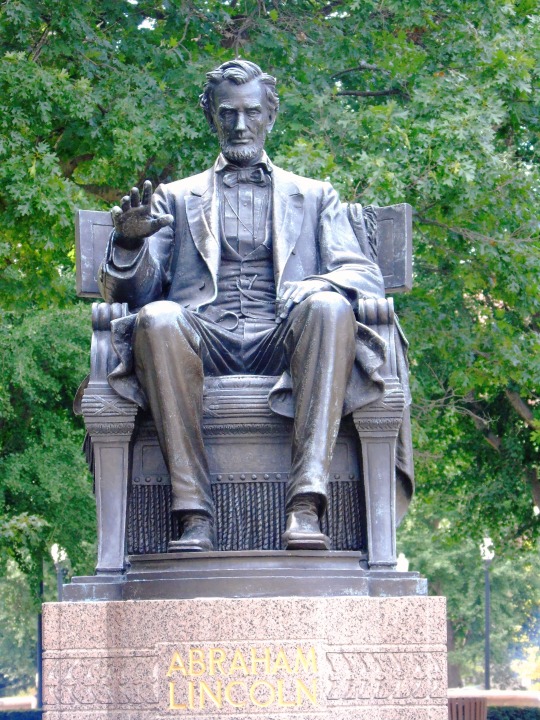
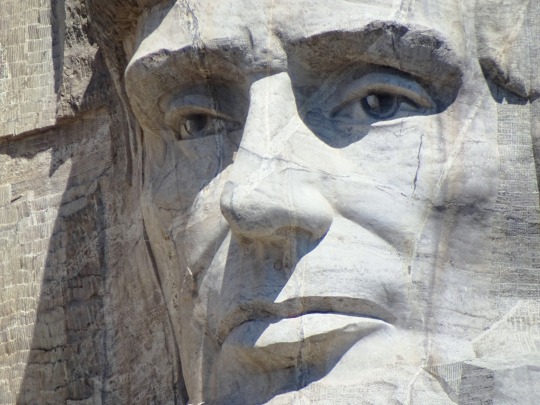
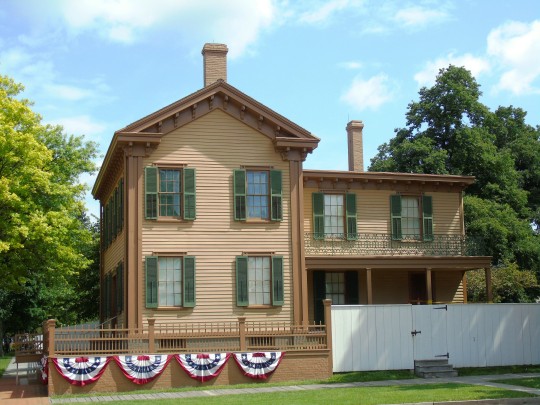
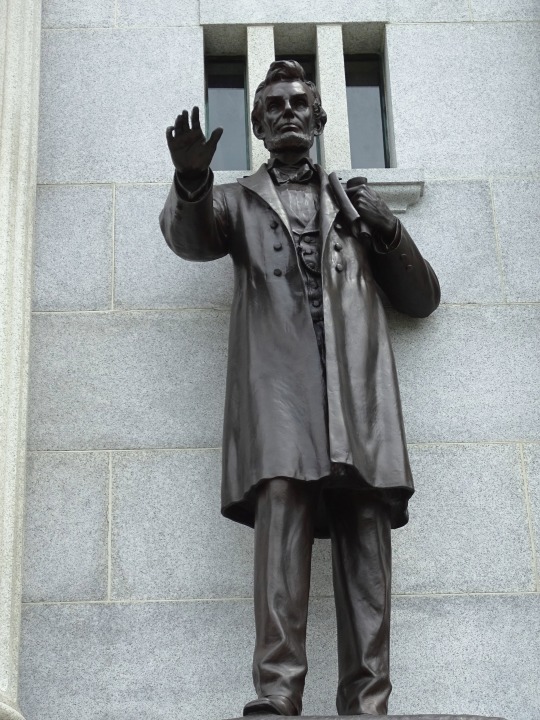
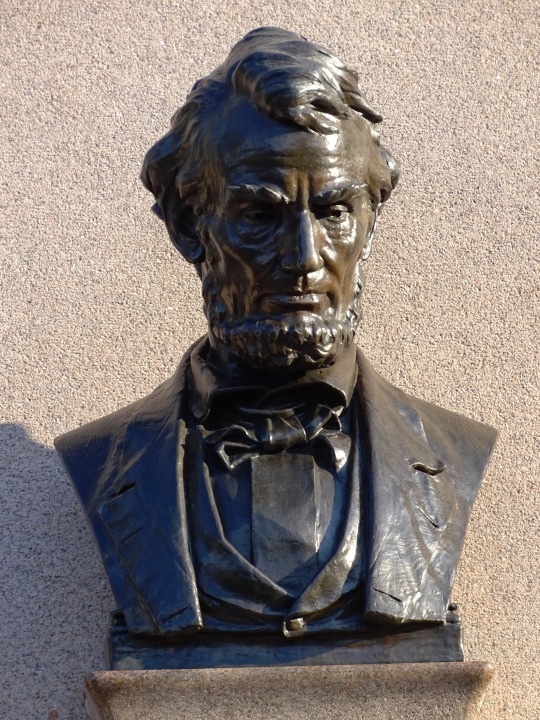
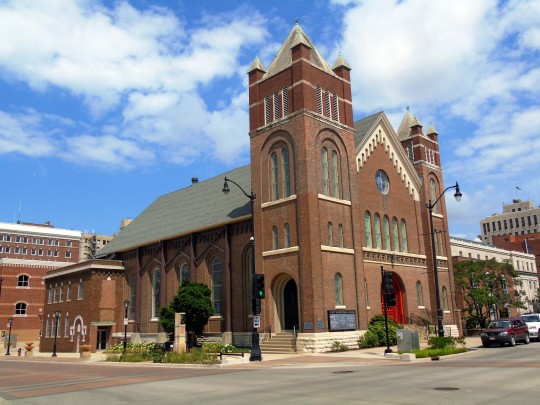
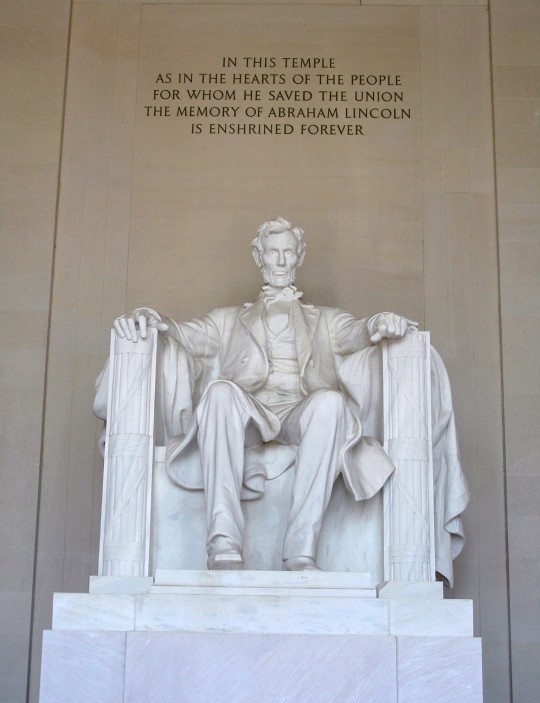
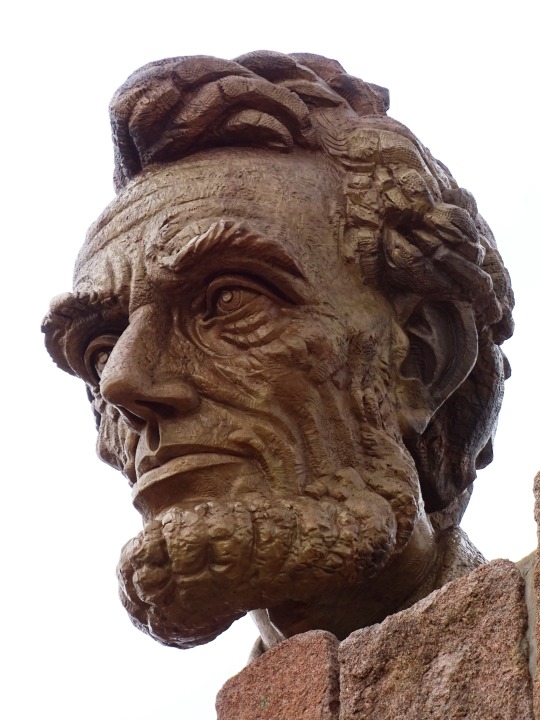
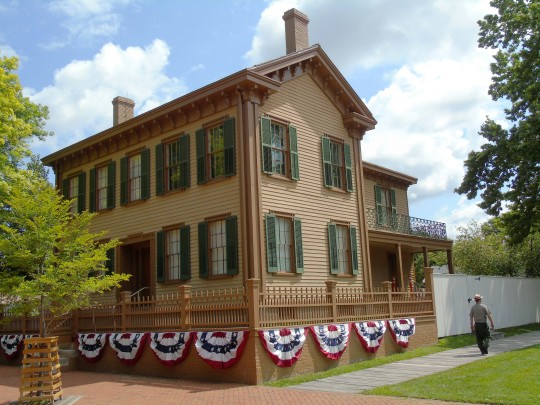
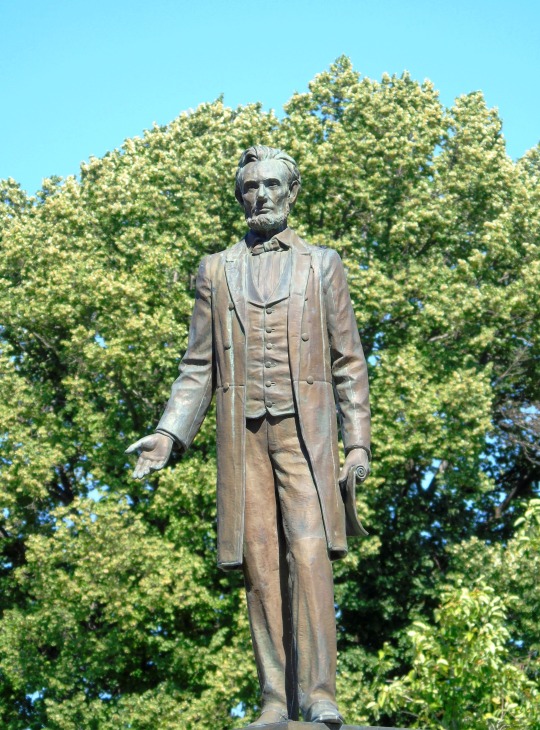
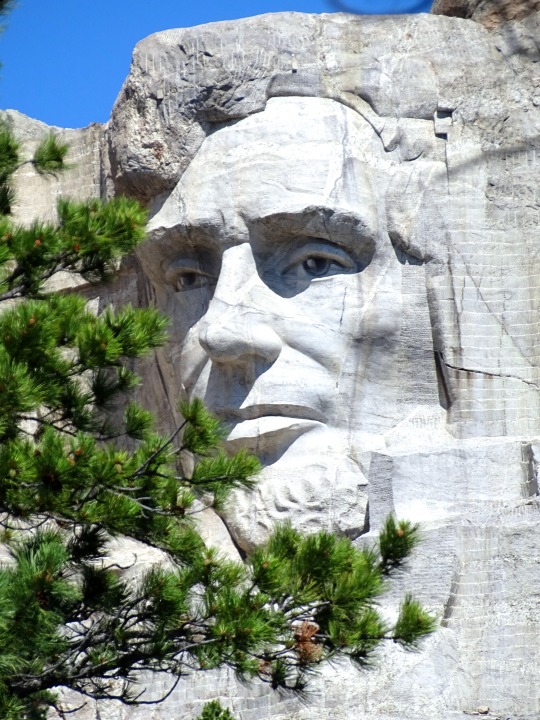

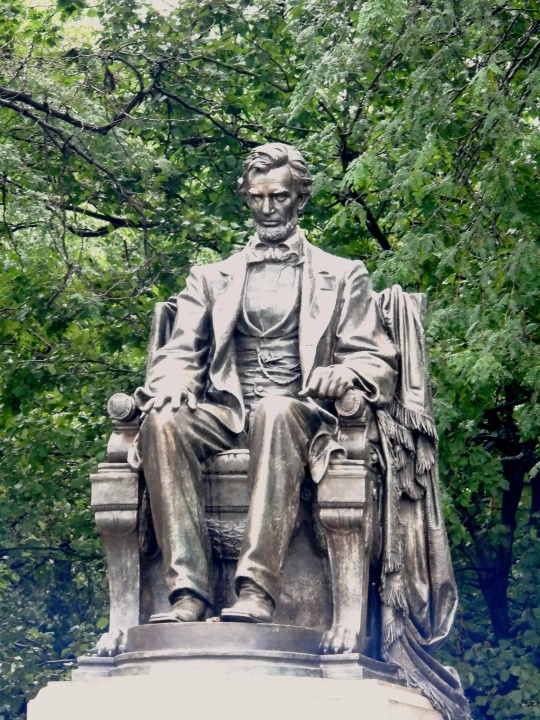
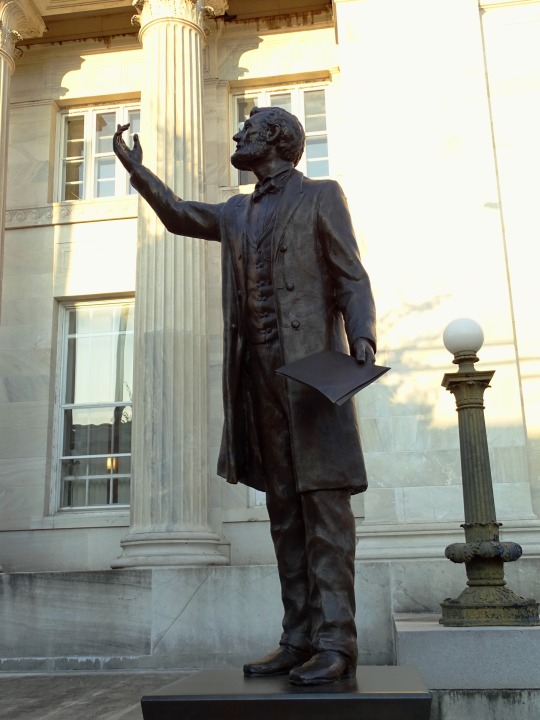
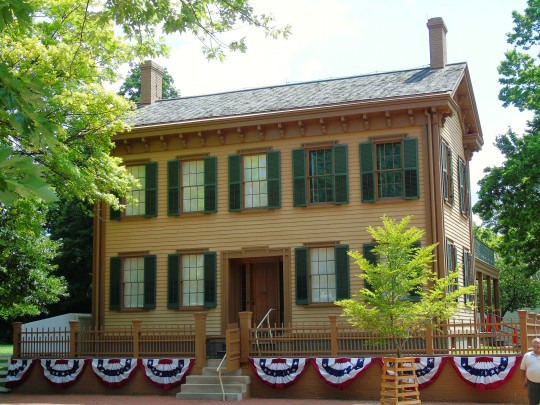
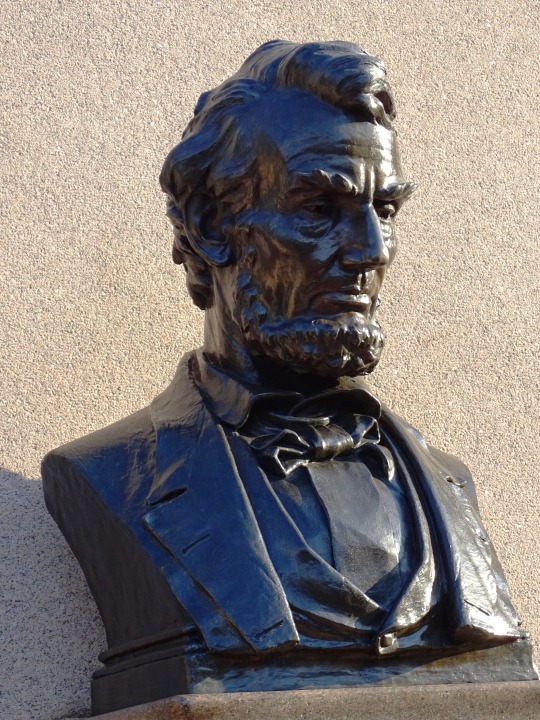
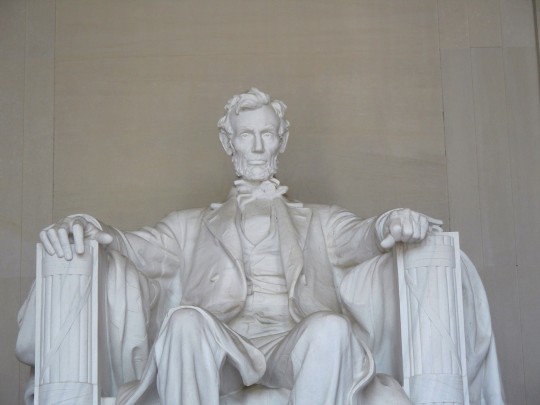
Lincoln's Birthday
Abraham Lincoln, the 16th President of the United States, was born on February 12, 1809. Over the years, he has become known as one of the greatest American presidents of all time. At the time of his death, in 1865, many saw him as a martyr, and it wasn't too long afterward that his birthday began being observed informally. In the mid-1870s, Julius Francis of Buffalo, New York, began honoring Lincoln on his birthday and petitioned Congress to make the day a legal holiday.
But, as of 2019, Lincoln's Birthday is not, nor has it ever been, its own federal holiday. On the state level, a handful of states celebrate Lincoln's birthday on its actual date. In recent years, it has been celebrated as a state holiday in Ohio, Missouri, New York, Illinois, and Connecticut. It is celebrated as such in California as well, but since 2009, it has no longer been a paid holiday there. Some states, Indiana being one example, have officially celebrated Lincoln's birthday, but not on the actual date of his birth. In prior years, more states officially celebrated his birthday; twenty-four states celebrated it in 1940, and ten celebrated it in 1990.
Although Lincoln's Birthday is not celebrated on its own on the federal level, it is often implicitly or explicitly celebrated as part of Washington's Birthday, which is usually called Presidents' Day, taking place on the third Monday in February. In some states, this holiday is known as Washington and Lincoln Day. However, there are other variations of the day; some states specifically celebrate only Washington, and some celebrate Washington and another president, such as Thomas Jefferson.
Besides state observances and informal federal observances, Lincoln's Birthday is celebrated at many places associated with him. Each year, there is a wreath-laying ceremony at the Abraham Lincoln Birthplace National Historical Park in Kentucky. Since its dedication in the early 1920s, there has also been a wreath-laying ceremony at the Lincoln Memorial, which is organized by the Lincoln Birthday National Commemorative Committee and the Military Order of the Loyal Legion of the United States. The reading of the Gettysburg Address is also a part of this event. For his bicentennial, on February 12, 2009, the Abraham Lincoln Bicentennial Commission organized a special event at the Lincoln Memorial. That same day, four new Lincoln pennies were released, with backs that depicted different stages of Lincoln's life. Each year on the day, events are also held at the Abraham Lincoln Presidential Library and Museum in Illinois. The Republican Party holds Lincoln Day dinners around the date because Lincoln was the first Republican president.
Abraham Lincoln was born in a one-room log cabin just south of present-day Hodgenville, Kentucky. When he was two, his family moved to Knob Creek Farm, which is northeast of Hodgenville. In 1816, he moved with his family to Indiana. He did not get much schooling while growing up and often had to work to help support his family, doing things such as farming and splitting rails for fences.
In 1830, his family moved to Macon County, Illinois. He got a job on a boat, hauling freight down the Mississippi River to New Orleans. He then settled in West Salem, Illinois, where he worked as a shopkeeper in a store as well as a postmaster. In 1832, he was a captain in the Black Hawk War and ran for a spot in the Illinois state legislature, which he lost. However, he ran again in 1834 and was successful. As a member of the Whig Party, he was influenced by other Whigs such as Henry Clay and Daniel Webster. Some policy positions he held at the time were in opposition to slavery's spread to the territories, and a goal of expanding the United States with a focus on commerce and cities.
Lincoln decided to teach himself law and passed the bar in 1836. Shortly thereafter, he moved to Springfield, a few years before it became the state's capital. He married Mary Todd in 1842; they had four sons together, although only one would live into adulthood. Lincoln was elected to the U.S. House of Representatives in 1846, but pledging to serve only one term, he returned to Springfield in 1849. His opposition to the Mexican-American War is the most remembered element of his term.
Politics were in Lincoln's blood, and he decided to return to them in 1854. That year, Democrat Stephen Douglas had helped get the Kansas-Nebraska Act passed, which said there should be popular sovereignty when it came to slavery in the territories, meaning that voters should be able to decide for themselves if slavery should be allowed in them. On October 16, 1854, in Peoria, Illinois, Lincoln debated Douglas about the act. During the debate, he spoke against slavery and said it was incongruous with the Declaration of Independence. That same year, he joined the recently formed Republican Party, a party that was created in large part on the belief that slavery should not expand into the territories.
In 1858, Lincoln ran against Stephen Douglas for a U.S. Senate seat in Illinois. In June, he gave his house divided speech, which said the country couldn't go on existing half slave and half free. Lincoln lost the race but gained national recognition, in part because of the debates he had with Douglas.
The Republicans nominated Lincoln as their candidate for president in the 1860 election. It was a four-way race: Stephen Douglas was the nominee of northern Democrats, John C. Breckenridge was the nominee of southern Democrats, and John Bell was the nominee of the Constitutional Union Party. Breckenridge and Bell split the southern votes, and Lincoln won most of the north. He won the electoral vote count, and thus the presidency. By the time he had taken the oath of office in March 1861, seven states had already seceded from the Union; the Civil War began the following month.
The Civil War engulfed Lincoln's presidency, but he proved to be an adept war leader. After George McClellan failed to pursue the Confederate Army after the Union victory at Antietam in September 1862, Lincoln removed him of his position of Commanding General. Lincoln also issued the Emancipation Proclamation after Antietam, which went into effect on January 1, 1863, freeing slaves in the southern states (slaves in the border states loyal to the Union were not freed). The emancipation laid the groundwork for slaves to be freed everywhere—the Thirteenth Amendment went into effect in 1865, after Lincoln's death.
In November 1863, Lincoln delivered the Gettysburg Address at a dedication of the national cemetery at Gettysburg. It became one of the most famous speeches in American history. Although Lincoln has been lauded for fulfilling the commander-in-chief role, he did so not completely without controversy, as he suspended habeas corpus.
In 1864, Lincoln faced the general he had relieved, George McClellan, in his bid for reelection. He prevailed, and at his second inaugural he spoke of the end of the war, and the need for a conciliatory reconstruction "with malice toward none; with charity for all." On April 9, 1865, Confederate commander Robert E. Lee surrendered to Union Commanding General Ulysses S. Grant at Appomattox Court House. Two days later, Lincoln gave a speech on the White House lawn.
On April 14, which happened to be Good Friday, President Lincoln was shot in the back of the head by John Wilkes Booth while at Ford's Theatre. He died early the next morning at a boarding house across from the theatre. Today we remember his remarkable life and his contributions to the United States at such a difficult time in its history.
How to Observe Lincoln's Birthday
The following are some ways to celebrate Lincoln's Birthday:
Visit the Abraham Lincoln Birthplace National Historical Park. This encompasses both his birthplace south of Hodgenville, as well as Knob Creek Farm, where he lived next. A wreath-laying ceremony takes place at the park.
Stop at the Lincoln Museum in downtown Hodgenville as well as the nearby Abraham Lincoln Statue.
Stop at other places along the Kentucky Lincoln Heritage Trail.
Attend the wreath-laying ceremony at the Lincoln Memorial.
Visit the Abraham Lincoln Presidential Library and Museum and The Lincoln Tomb in Springfield, Illinois.
Stop at the Lincoln Boyhood National Memorial in Indiana or at the Abraham Lincoln Library and Museum in Tennessee.
Go to Ford's Theatre.
Read a book about Lincoln.
Read some of Lincoln's own writings and speeches.
Source
#Lincoln's Birthday#Abraham Lincoln#born#12 February 1809#215th anniversary#Lincoln Memorial#Henry Hering#Lincoln Home#Lincoln Home National Historic Site#Seated Lincoln#Augustus Saint Gaudens#First Presbyterian Church of Springfield#Lincoln Family Church#statue#art#Washington DC.#Springfield#Indianapolis#Chicago#USA#photography#history#travel#original photography#vacation#tourist attraction#landmark#cityscape#architecture#US history
1 note
·
View note
Text
Andrew Bird, Margaret Glaspy & Julian Lage Gezelligheid Preview

Andrew Bird; Photo by David Black
BY JORDAN MAINZER
It's that time of year again--not just for Christmas or Hannukah or beer and wine advent calendars, but for Andrew Bird's annual Gezelligheid concerts at the Fourth Presbyterian Church. This year, Bird will perform 7 shows: tonight, tomorrow, and the 11th-15th. Usually, he plays a mix of original songs and holiday-related covers or standards. In 2020's Hark!, Bird has his first ever Christmas album to his name, so you can expect to hear a few of those tunes, too.
If it were up to me, Bird would gift us some instrumentals. That is, earlier this summer, he followed up 2022's Inside Problems with a companion album, Outside Problems (Loma Vista), improvised instrumentals recorded outdoors in Ojai, CA. Though it follows some of the formless themes of Inside Problems, it's wholly original and some of Bird's most inspired work in years. "Epilogue" is flaneur-like, Bird purposefully not giving thought to the potential for other band members or a chorus or structures, while cheekily titled tunes like "Mormon House Party" and "Tik Tok" use repetitive sways to lull us into the bends of Bird's violin. Best, his gorgeous voice does appear, but in the form of wordless vocalizations, harmonizing with his plucks on "Mancey" or popping up on the off beat on "Mormon House Party".

Margaret Glaspy; Photo by Josh Goleman
Opening for Bird each night is a duo comprised of Margaret Glaspy and Julian Lage, creative and life partners who have never released any recorded duo material but have plenty of history showing up on each other's records. For one, each had a hand in producing the other's 2023 album, Glaspy's terrific Echo the Diamond (ATO) and Lage's Grammy-nominated The Layers (Blue Note). Echo the Diamond prominently features both Lage and Bird collaborators (The Bad Plus drummer Dave King, bassist Chris Morrissey), and you can certainly hear Lage's jazz influences on the skittering Ryan Lerman co-write "Hammer and the Nail". Not to take anything away from Glaspy--Echo the Diamond is far and away her best album yet mostly thanks to the increasingly worn twang of her voice and ability to make worlds out of fleeting moments and the conversations we have with ourselves, in our own heads. From country-tinged odes to new love ("Act Natural") and feminist rallying cries ("Female Brain"), to reverent admittances to the power of our minds ("Memories") and self-criticism ("Turn The Engine"), Echo the Diamond runs the gamut of emotions in a lean 35 minutes. At the center of it all is Glaspy's observational prowess, or as she describes on closer "People Who Talk", her ability to "make like a fox and start listening."
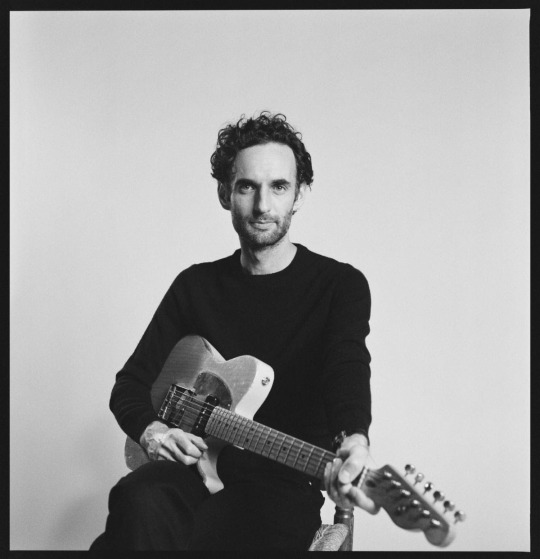
Julian Lage; Photo by Alysse Gafkjen
Glaspy's influence on Lage's The Layers is a tad more palpable. Written as a described "prequel" to 2022's View With A Room, the record showcases interplay between Jorge Roeder's bass and King's drums, and at times between Lage and Bill Frisell. Glaspy's able to emphasize the raw timbres of Lage and Frisell's acoustic guitars on "This World", or Lage's expansive, twinkling playing on "Missing Voices" atop King's creaking percussion. And the title track is a chugging, almost country rock number, an instrumental that could back Glaspy without batting an eye. In fact, it wonderfully previews Lage's latest choogle of a single "Omission", produced by Joe Henry and that will feature on an upcoming Blue Note album next year. It's hard to predict what Glaspy and Lage will play, but both artists, individually and together, have the chops to make it a memorable opening set you won't want to miss.
youtube
#live picks#jam usa#metro#andrew bird#margaret glaspy#julian lage#fourth presbyterian church#ato#alysse gafkjen#outside problems#david black#gezelligheid#hark!#inside problems#loma vista#loma vista recordings#josh goleman#echo the diamond#ato records#the layers#blue note#blue note records#the bad plus#dave king#chris morrissey#ryan lerman#view with a room#jorge roeder#bill frisell#joe henry
0 notes
Text

0 notes
Text
America's Only Hope is the Gospel - Pastor Patrick Hines Podcast / Galatians 5
The following two books written by Pastor Patrick Hines are now available on Amazon. All proceeds go directly to Pastor Hines.
▶️Am I Right With God?: The Gospel, Justification, Saving Faith, Repentance, Assurance, & The New Birth…

View On WordPress
#Bible#Christian#christian podcasters#christian podcasts#Christianity#God#Presbyterian#presbyterian authors#presbyterian church tennessee#presbyterian podcast#presbyterian podcasters#reformed podcasters#reformed podcasts#reformed preachers#usa#WordOfGod
0 notes
Text
I decided to make this its own post for two reasons: one, I didn't want to derail a post that is about Judaism with a discussion of a different faith and two, it was really only one of several posts I've seen recently that stuck out to me as being "man, this is way off-base."
This is not so much about "people are saying mean things about this religion and it hurts my feelings!" but it is definitely about "people are making statements that represent a wildly skewed and inaccurate picture of the reality, and I can't tell whether they're being hyperbolic on purpose or think they're genuinely telling the truth." This is not a question of whether any given church is good or bad; this is a question of whether there is or can be a distinct entity that serves as a single unified church or faith in American Christian tradition (spoiler: No.)
Here's the basic message: Any discussion of "the Christian god" or "the Christian faith" or "American Christianity" needs to be taken with a big honking asterisk that there is no single portrayal of God, or Christianity, or spirituality and faith that conveys accurate information about the entire breadth of American Christianity.
There is no single American Christian Church. None. The single biggest branch of American Christianity, Southern Evangelical Baptist, makes up at its broadest 30% of all American Christians (12% of the overall population.) The rest are split between Catholic, Methodist, Episcopalian, Presbyterian, Lutheran, Pentecostal, Adventist, Congregationalist, and a dozen other even tinier branches, before you even get into the more far-out variants that people have ongoing arguments as to whether they even really count as "Christian." (LDS, Unitarians, and possibly Mennonites fall into this category.) Most of the major branches share a lot of common ground, but there's an enormous amount of variation -- they disagree widely on concepts such as the existence or nonexistence of Hell; the mechanics of conversion or salvation; the requirements of baptism or confirmation; whether prostylezation is required, encouraged or even permitted; what kind of sexualities are or are not accepted; God as an active or non-active role in the world; how 'sin' works or if it's even a thing; the existence or not of saints; the divinity or not of Christ; or even the idea of an anthropomorphic God at all. Some are progressive, some are fundamentalist, some are fundamentalist in ways that are completely at odds with the popular perception of what those fundaments are. I personally know one Methodist pastor who also believes and teaches about God as a "oneness of the universe" and have met others who conceive of God as "that which spans the space between the limits of our understanding and the limits of our universe." You cannot categorically state that all American Christians share a common notion on any of these topics.
Other statements I've seen recently that just made me go "what? no?"
That the USA was founded by religious extremists and That's Why America is Like That. Only one or two of the original settlements were founded for this purpose. Some were founded with an explicit purpose of total freedom of (or from) religion; others were entrepreneurial ventures with nothing to say on the topic of religion at all. When the guiding documents of the American state were put together the clause of freedom of religion was included front and center precisely because they didn't want religious extremists to be steering the ship.
That the majority of USAmericans are in cults and don't even realize they're in cults. This requires both an extremely broad definition of “cult” (to encompass pretty much any branch of Christianity, not only the more extremely evangelical ones) and severely over-estimates how many people in the US are practicing Christians (less than half.)
That the "Christian God" is intended to function as a "Great Uniter" into which other faiths can be folded; This is not a Protestant thing. Most Protestant faiths are not syncretic to the degree Catholicism is (or at all,) since there wasn't a motivating political entity backing their creeds to make them so. Again: Not all branches of American Protestantism require, encourage, or even permit prostylezation.
On that note: Not all Christians are Catholic. This isn't news, right? People know this, right? This is one of those things that I always assumed was very common knowledge, and was very surprised to run into people who were not aware of this (who either think that all Christians or Catholic, or else that Catholics are not Christian at all, depending on which side of the equation they're approaching from.) Protestant and Catholic Christianity are very very distinct entities both spiritually and politically, and in the USA, Catholic Christianity is a minority religion and is mostly (though not exclusively) practiced in minority demographic communities. Of 46 presidents so far only one has been Catholic, and a lot of the opposition to JFK's appointment was people being suspicious of his Catholicism since it was thought that his loyalty to the Church might supersede his loyalty to the US. American Christianity is mostly Protestant, not Catholic, and Protestant Christianity does not function at all the way Catholicism does. We had a whole Reformation about this. Any take that refers to "The Church" in America as a single united entity that dictates theology to its outreaching branches is... off-base.
What certainly is true is that a number of individual churches in the US have organized around the aim of consolidating social and political power, have worked at advancing their members to positions of power in order to protect and promote their interests, and thus are over-represented and have outsized influence on the political sphere. The ones that do this, as well as the ones that put emphasis on proselytizing and on money-making, tend to self-select for being the most visible and infamous because their business model is expansive by nature. That's certainly the case for the SEB in the American South, or the LDS in Utah. I really get the feeling when people use these broad terms that they are thinking either of the SEB (again, not even a majority among American Protestants!) or of the Catholic church (even less so!) But not only do not all Americans agree with those beliefs, they don't even agree with each other.
1K notes
·
View notes
Text
Hiiiii as a queer person living in the Bible Belt of the USA, I’m envisioning a “Christian trauma AU / general theology AU” because you know my main focus is always Sanji. This assumed that we’re in the USA, modern era, and I guess maybe a college or post grad AU for how they meet each other? This is a lonnnnnnnng text post so scroll at your own risk. To keep it from being toooo long I’m also sticking to east blue crew.
Hear me out:
There are a million different sects of Christianity so we’ve got a ton of angles to use.
Garp is catholic (but think FRENCH laïcité instead of American Amy Coney Barret Supreme Court justice weird catholic cult), Dragon straight up rebels against the strict structure and goes about his atheist ways. Neither of them really raise Luffy anyway so 💁🏻
Luffy ends up being agnostic. It’s not that he doesn’t believe in a higher power but he knows he needs to take action and that he can’t rely on a higher power to fix the problems of the world. Very Albert Camus, revolting against the absurd and holding himself to a higher responsibility in life
Zoro comes from a Shinto or Buddhist background. He’s not judging anyone’s religious beliefs unless they’re harming others.
Nami has religious trauma from the Baptist church that set up in her town and made it impossible to be herself. Belle Mere is so clearly queer and she’s harassed and dies at the hands of some zealous bigots who were emboldened by the words of the local Baptist church pastor (Arlong)
Ussop comes from a chill Protestant background (maybe Presbyterian?) But he’s more of a CEO (Christmas Easter Only) in terms of actually attending any sort of church. Honestly, with his dad out of the picture and his mom dying, he just had bigger things on his mind like living every day.
Finally, Sanji. Oh boy, Sanji has major “Quiverfull movement Christian” trauma from Judge. For those who don’t know, quiverfull is a Christian extremist movement where the idea is to have as many kids as possible and adhere to very strict purity rules and gender roles. Contraception isn’t allowed. Women wear long skirts and non fitted shirts to hide their womanly form (ew), and most of the time these parents homeschool there kids to avoid the “temptation” or “impurity” of modern society.
Judge had these 5 kids who he’s raised in this faith but Sanji never liked how Judge treated his mom. Why was Sora supposed to be “seen and not heard?” Why was it ok for his brothers to use scripture to bully and hurt and spread hate? Why would a loving god create women just to subjugate them? Judge wouldn’t like this, and once Sora passes away (probably because Judge wouldn’t let her seek medical care post birth of the quadruplets, so her health deteriorated for years), Judge locks him up and makes him do all sorts of horrible “prayer” and “repentance” practices, which are really just abuse.
Sanji would maybe escape when they go into town to get something mundane like a printer or a new wifi router (which only judge is allowed to use the internet). He’d probably bolt first chance he gets and when he meets Zeff, Zeff can recognize the signals of abuse. He takes Sanji in and even though Sanji never believed women were less than men, he still has years of trauma and gender roles beaten into him that he has to unpack.
His choice to cook? That’s a huge rebellion. Wearing tight fitting suits that look sinful? That’s a middle finger to his dad. He always treats women like goddesses because he feels so much guilt for the sins of his father. When he finally joins the Strawhats, he’s so overwhelmed with how free and nonjudgmental they are (of important stuff, obviously they’ll still poke fun at small stuff) that he feels comfortable dropping little comments here and there, opening up.
Ussop will be comforting Nami about something and sanji will tell him is so refreshing to see a man be so nurturing. He goes to Ussop often, asking how he’s so confident sharing his emotions.
Nami will be ordering them around and he’ll do everything she says with a smile, just happy to see her free to do what she wants (which is be a bossy bitch)
Zoro will talk about Kuina one night and Sanji will sob, overwhelmed with joy that she got to have all that strength and a friend like zoro even when faced with hurtful gender expectations.
Luffy above all is the most jarring for him. He grew up hearing about sin and sinners and temptation and evil but when he sees Luffy doing his thing, taking down bad people, fighting for the underdog, he knows that if there is a God (he she it they? Who cares), Luffy is doing their work.
——————
Bonus Gay Cherry on top is that Sanji meets Iva and gets into drag, starts performing, does some events, and through that gender liberation is able to find some peace in who he is, tucking away all the hate he was born into. And he ends up with zoro the end bye
#too long don’t read#one piece christian trauma au???#east blue crew au text post#black leg sanji#monkey d luffy#east blue crew#one piece#text post#cat burglar nami#god usopp#sanji#roronoa zoro
26 notes
·
View notes
Note
What does it mean that you're a catholic presbyterian? What are your views on Church authority and predestination?
I like to imagine myself as a tree with Irish Catholic roots, a Presbyterian/Protestant trunk, and agnostic/ecumenical/interfaith-reaching branches.
I need all parts to be whole. All parts rely on Divine warmth, water, breath for life. All parts depend on a rich soil of scripture, story, and the wisdom of those who've come before me for nourishment and grounding.
___
The roots:
I was baptized and raised Roman Catholic. My family (and a large number of families in the area I grew up) has a proud history of Irish Catholicism in particular. My childhood church was Catholic, and I was passionate about participating in that community's life all through grade school.
Some of my earliest religion-related memories are of reading Saints' stories, establishing relationships with those who most spoke to me. Mother Mary has had my heart as far back as my memories go.
As I discovered my queerness in college and gradually realized the need to seek fully welcoming community, I did not leave behind those things I held most dear from Catholic spirituality.
Over the years, my connection to the Roman Catholic Church as an institution has fractured more and more; last May it splintered entirely. But I refuse to let Rome have a monopoly on Catholic faith, or on Mary and the Saints.
...Especially because Mary and the Saints were my greatest spiritual supports in college: with delighted wonder, I came to recognize how very queer my closest Saints were! They helped me embrace my queerness as a holy gift; I carried them with me into a little PC(USA) church that my then-girlfriend, now-wife found near our college campus.
The trunk:
The Presbyterian Church (USA) denomination holds me up in sturdy community: this is the denomination I'm currently "officially" part of — got my Masters of Divinity at a PCUSA seminary, got married in a PCUSA church, am on this denomination's ordination path.
This doesn't mean I think the PCUSA is the best religion or even the best form of mainline Protestantism. They all have their strengths and their flaws. But the PCUSA was the one that first came into my path, and I'm currently satisfied with my decision to commit myself to it — so long as it continues to make plenty of room for my Catholic roots and ecumenical branches.
The branches:
Though Louisville Seminary is a Presbyterian institution, when I attended from 2016-2019 at least 40% of my classmates and some of the staff there belonged to other denominations (or in a few cases, aren't Christian at all).
The opportunity to learn alongside folks from a variety of traditions was invaluable to my continued spiritual growth. I learned so much from them! I grew into my sense that all individuals and faith communities have something to teach us the Divine and about what it means to be human in relationship to Divinity and to Creation.
Then there's the agnostic part of the "branches":
Over the years I've also experienced more and more seasons where I'm just not sure that the Trinity, the Incarnation and Resurrection, and all that Christian-specific stuff is "real." But whether or not it is, I choose to remain committed to this path I'm on — with openness to fresh insights — because I do draw spiritual nourishment here. I do believe that the story of the Trinity and the Incarnation can guide us into living for Goodness, Justice, abundant life for all beings.
...Basically, I don't know whether it's all "true," but I do believe it holds powerful Truth; I remain committed to the Story.
(Also the bible has been my main special interest since i was like 6 so it's one of the main lenses through which i view the world so i'm stuck here for better or worse lfadfjalfjdalk;j! )
I believe it's imperative for Christians living in Christian supremacist cultures to practice humility above all else — to accept the fact that we don't have all the answers, that we're not the Most Right, that we don't enjoy unique favor with God. For me, identifying as agnostic reminds me that I don't know everything about God by any means, and may actually know very little at all. It reminds me to remain humble, open, and curious.
The fruit:
My hope is that this little tree that is me yields good fruit. I don't care if I have all the right answers, so long as I'm glorifying the Divine in some small way; easing suffering in some small way; bringing joy into this world in some small way. That's what matters to me.
________
I imagine the above implies my views on Church authority. If it doesn't, well, I'll just say I'm kind of an anarchist about church as much as anything else! The Church should never have come to wield as much power as it has. And whatever the "role" of the Church is in the Divine Story, I remember learning somewhere in seminary that the ultimate future of Church is to dissolve — that when we've experienced the full in-breaking of God's Kin-dom, there will be no more need for Church.
________
Not all Presbyterians hold to predestination — and for most I know who do, it's not really a central part of their faith life.
But sure, you could say I believe in predestination: I believe we are all predestined for participation in God's Kin-dom! :)
________
Further reading:
My tag of LGBTA patron Saints <3
My first podcast ep explores some of my spiritual journey
My queer and Catholic tag
Some other semi-related tags — good fruit tag; religious pluralism tag; evangelism tag; church hurt tag
My PCUSA tag, which includes a post with some old class notes about predestination
OH ALSO there's a podcast called "Called to Be Multiple" that interviews folks who draw from multiple faith sources. Cool stuff!
30 notes
·
View notes
Text
We, the undersigned organizations, write to express our urgent concern regarding dire and escalating violence in Israel and Occupied Palestinian Territory, which continues to result in significant human suffering and loss of civilian life.
We condemn all violence against civilians by Hamas and the Israeli military. In this critical moment, we believe it is imperative that U.S. policymakers take measures to immediately de-escalate the violence to prevent the further loss of civilian life. We urge Congress and the Administration to:
Publicly call for a ceasefire to prevent the further loss of life;
Prioritize the protection of all civilians, including by urgently securing the entrance of humanitarian aid into Gaza and working to secure the release of hostages; and
Urge all parties to fully respect international humanitarian law.
We implore Congress and the Administration to abstain from rhetoric that exacerbates violence and to unequivocally condemn all violations of international law. Over the last several days, the Israeli government has cut all food, fuel, and humanitarian assistance to the Gaza Strip. On October 12, Israel issued an evacuation order for the entire northern Gaza Strip, telling residents to evacuate south of Wadi Gaza. This amounts to approximately 1.1 million people. The U.N. is calling for this order to be rescinded, warning it will have “devastating humanitarian consequences.”
We again urge Congress and the Administration to publicly call for, and help to facilitate, an immediate ceasefire to prevent the tragic loss of more innocent Palestinian and Israeli lives. Thank you for your urgent consideration.
Sincerely,
Alliance of Baptists
American Baptist Churches USA
American Friends Service Committee
American Muslims for Palestine
Americans for Justice in Palestine
Anera
Arab American Institute
Auburn Theological Seminary
Center for Civilians in Conflict
Center for Jewish Nonviolence
Center for Victims of Torture
Church of the Brethren, Office of Peacebuilding and Policy
Churches for Middle East Peace
Common Defense
Council on American-Islamic Relations
Demand Progress
Democracy for the Arab World Now
The Episcopal Church
Evangelical Lutheran Church in America
Fellowship of Reconciliation
Freedom Forward
Friends Committee on National Legislation
Global Centre for the Responsibility to Protect
Grassroots International
Historians for Peace and Democracy
If Not Now
Institute for Policy Studies New Internationalism Project
International Civil Society Action Network (ICAN)
Israel/Palestine Mission Network of the Presbyterian Church (U.S.A.)
Jewish Voice for Peace Action
Just Foreign Policy
Justice Democrats
Lott Carey Baptist Foreign Mission Convention
MADRE
Maryknoll Office for Global Concerns
Mennonite Central Committee U.S.
Minnesota Peace Project
MPower Change Action Fund
National Council of Churches
National Iranian American Council
Neighbors for Peace
Nonviolent Peaceforce
PAX
Pax Christi USA
PC(USA) Office of Public Witness
Peace Action
Project on Middle East Democracy
Quincy Institute for Responsible Statecraft
Quixote Center
ReThinking Foreign Policy
Robert F. Kennedy Human Rights
RootsAction
September 11th Families for Peaceful Tomorrows
Sojourners
The Duty Legacy
The Unitarian Universalist Association
The United Methodist Church - General Board of Church and Society
The Zomia Center
United Church of Christ
United for Peace and Justice
UNRWA USA
Women for Weapons Trade Transparency
Working Families Party
World BEYOND War
Yemen Freedom Council
Yemen Relief and Reconstruction Foundation
Yemeni Alliance Committee
5 notes
·
View notes
Text
Ahead of Philippine President Marcos Jr.’s visit with President Biden on Monday, May 1st, over one hundred faith organizations and institutions–including Ecumenical Advocacy Network on the Philippines, Pax Christi USA, Presbyterian Church – USA Office of Public Witness and the United Methodist Church Board of Church & Society – initiated an ecumenical letter with the International Coalition for Human Rights in the Philippines to call on President Biden to abstain from any new military agreements with President Marcos that will further contribute to human rights violations. The cosigning faith groups additionally urged President Biden to support the Philippine Human Rights Act, which would suspend US security assistance to the Philippines until the Government of the Philippines has investigated and prosecuted human rights abuses in the military and police force.
Noting the lack of change since Marcos assumed office 10 months ago, faith communities state: “President Marcos and his administration have shown ongoing impunity for human rights abuses similar to those seen under the preceding Duterte presidency. Human Rights Watch reports there has been “no let up” in the war on drugs under Marcos Jr., which took as many as 30,000 lives under Duterte. Karapatan Human Rights Alliance reports that from July to December 2022, there were 17 extrajudicial killings, 165 illegal arrests, and a total of 825 political prisoners, 73 of whom are elderly. Karapatan additionally recorded 200 cases of red-tagging and notes that the Marcos Administration continues to use the Anti-Terrorism Act and the National Task Force to End Local Communist Armed Conflict (NTF-ELCAC) “to create an unsafe environment for activists, rendering them more vulnerable to attacks against their persons.”
The ecumenical letter, which follows an interfaith delegation hosted by ICHRP that traveled to the Philippines in February, notes the delegation “met with dozens of community members and organizers who confirmed that the Armed Forces of the Philippines and Philippine National Police are guilty of widespread violations of human rights and international humanitarian law. We are aghast,” it states, “that despite the human rights situation, our government continues to channel various forms of resources to the Philippines (i.e. military training, weapons). In addition, the most recent military deal to build four more US military bases in the country is an affront to the peace of the region. As people of faith, we strongly oppose and condemn the use of a large portion of our country’s budget to support regimes that oppress their populations.”
The release of the letter comes alongside mass protests of Filipino-Americans and allies from labor and human rights organizations, who are holding an all-day vigil in front of the White House on Monday.
10 notes
·
View notes
Text
Hey, i have some exciting news: i’ve been appointed to the board of directors for my denomination’s LGBTQA+ organization!
I’m headed to Nashville tomorrow for a short retreat where I’ll learn more about what my roles will be.
I’m nervous, but also excited. I see much potential in More Light Presbyterians’ future — not because it has an unblemished past (it doesn’t), but because the people currently at the helm have recognized the need to take greater action and to emphasize intersectionality.
Prayers or good vibes are deeply appreciated as I and the others all travel and meet one another! Meanwhile, some other thoughts / some More Light history are under the readmore.
More Light Presbyterians’ Mission Statement:
“Following the risen Christ, and seeking to make the Church a true community of hospitality, the mission of More Light Presbyterians is to work for the full participation of lesbian, gay, bisexual, transgender, queer, intersex, and asexual (LGBTQIA+) people in the life, ministry and witness of the Presbyterian Church (USA) and in society.”
The informal beginning of the More Light movement was in 1974, when David Bailey Sindt, at a meeting of the Presbyterian General Assembly, held up a sign reading "Is anybody else out there gay?" (I’ve posted about this historical event before!)
Thus More Light Presbyterians has been around for decades, with the original priority being to get the PC(USA) to affirm the ordinations and marriages of gay (and later more specifically LGBTQA+) folk. That’s now been accomplished!! (See this post for one historical stop along the way)
However, there is clearly a lot of work yet to do. Not all PCUSA congregations are LGBTQA+ affirming; and those that are often struggle to live out their theoretical affirmations for a number of reasons (lack of resources, or education, etc.).
I’ve interacted with a lot of More Light congregations since joining the PC(USA) back in 2015, with mixed results: I have been burned by some More Light congregations, and nourished by others. My home congregation, where I still participate regularly and where my wife and I got married, is a More Light congregation. But when I was in seminary, a different More Light congregation scared me off from wanting to be a pastor through their actions — they admitted they didn’t want to take me on as an intern because of “the pronoun thing.” Then there are the number of More Light congregations I’ve dropped by for just a service or two, only to find no non-gendered bathrooms & greeters who misgendered me despite my pronoun pin.
The problem is that a lot of congregations became More Light a decade or more ago, before an emphasis on not only being “gay friendly” but fully LGBTQA+ welcoming had come about. I applied for this position in the hopes that I can help More Light mean true affirmation, sanctuary, celebration for all LGBTQA+ folks.
I want there to be more expected of any congregation that chooses to call themselves More Light, so that I can recommend any More Light church to LGBTQA+ friends without a qualm.
When I applied, I wasn’t sure whether this goal would be an uphill battle or not. After one Zoom meeting with the current More Light leadership, I’m very hopeful that it won’t be: the idea of requiring more from MLP members was brought up; and intersectionality and anti-racism were also emphasized.
So let’s see where things go. Wish us luck!
35 notes
·
View notes
Text
PHOENIX – An Arizona House Democrat and ordained minister recorded on video hiding Bibles at a lounge at the state capitol apologized to her peers for her actions.
"I hold Scripture very dear to my heart," state Rep. Stephanie Stahl Hamilton, D-Tucson, said Wednesday, following the moment of prayer that begins every House floor session. "I recognize my actions could have been seen something as less than playful – and offensive."
Stahl Hamilton described her actions as a type of protest regarding the separation of church and state.
"The intent was never to be destructive, to never desecrate or to offend," she said.
Missing bibles were a 'mystery'
The missing Bibles were a "mystery" that went on for weeks until House Speaker Ben Toma, R-Glendale, took the advice of capitol security personnel and ordered a camera placed in the House members' lounge, said Speaker Pro Tempore Travis Grantham, R-Gilbert.
Some of the Bibles were discovered under seat cushions in the lawmakers' lounge, and one was found in the refrigerator, he said. The lounge is a private area for House members off the main floor.
"It makes me a little uncomfortable, and I think it's kind of offensive to people who believe in and cherish the Bible," Grantham said. "I feel like a disappointed dad."
Several House members stood next to Rep. Lupe Diaz, R-Benson, a pastor, as he delivered the morning prayer and talked about how "tyrants" have tried to burn, bury or hide the Bible from people.
Stahl Hamilton's official legislative member bio states that she graduated with a degree in Christian Education from Eastern Nazarene College in Quincy, Massachusetts, and later earned a Master of Divinity at Princeton Theological Seminary. She also has served at a Presbyterian church as director of Christian Education and Youth Ministry.
Will Stahl Hamilton face punishment?
It wasn't clear Wednesday whether Stahl Hamilton would face any disciplinary action. Toma declined to comment.
The House recently expelled one of its members for disorderly conduct following an ethics investigation sparked by a complaint filed by Stahl Hamilton.
But House Democratic Leader Rep. Andrés Cano, D-Tucson, said some members were concerned about the camera placed in the lounge.
"We have members wondering what is public record and what is not," Cano said. He added that he wasn't as concerned about how Stahl Hamilton got caught as the fact that Democrats were left out of the loop. He added that he learned about her actions "24 hours ago" on Twitter.
Grantham said the camera, which had also drawn complaints from a few Republican House members, was removed immediately after Stahl Hamilton was caught.Stahl Hamilton: 'It just felt like it's a game'
Stahl Hamilton dubs actions 'simple little prank'
After the House floor session, Stahl Hamilton told reporters that her "protest" didn't hinge on any particular incident but she was frustrated that "the Christian Bible gets used like a weapon around this place."
She was sitting in the lounge a few weeks ago and noticed for the first time that the room contained a Bible, even though it was "a government building."
"And so I just took it and put it in the couch cushions," she said. "At the time it just felt like a simple little prank."
Two days later, she noticed another Bible in the lounge and hid that one, too. A week later, they were back.
"To my brain, it just felt like it's a game ... a peaceful, playful protest," she said. "I have long been frustrated by the blurred lines between separation of church and state." So, she hid them again.
Putting one in the lounge refrigerator was "cheeky," she said.
Corazón Arizona, a multi-faith organization in metro Phoenix, sent a statement to The Arizona Republic, part of the USA TODAY Network, defending Stahl Hamilton's actions, saying her protest against "the extremists legislating hate" in the state House were now being used "in an attempt to shame" her.
6 notes
·
View notes
Text

Theocracy Is Not Heaven
Stephen Jay Morris
9/30/2022
©Scientific Morality
Like, wow daddy-o, dig this prolegomenon! At least in a Totalitarian leftist regime like North Korea, they will kill you because you violated the peoples' law. In a Theocratic regime like Iran, they will you kill because God told them to! That would hurt my feelings, knowing that God wanted me dead. But, to die because I violated a secular law? I wouldn't take it personally. At any rate: In a politically-challenged nation like the USA, not only do Americans not know what communism means, they irrefutably don't know the definition of Theocracy. Iran is a Theocratic nation. Does lunchbox Joe know that? Fuck, no!
When you hear the phrase, "Christian Nationalism," you must realize that it does not equate to Catholicism or Greek Orthodoxy, Lutheran, Presbyterian, Episcopal, Methodist, or even Jahovah's Witness, or any form of "normal" Christian denomination. What it means is Evangelical fundamentalism. In all honesty, the term should be "Evangelical Nationalism." However, a generalized noun has far more, mass appeal. Some Catholics see themselves as Christians. Dumb asses! The religious Right hates and has hated Catholicism since the days of Reformation, 500 years ago. Some religious Right folks view the Pope as the Anti-Christ!
If you know anything about comtemporary Islam, you know that the religion is more fractionalized than the political Left. Americans can’t nuance anything beyond a generalization. That is why most religions are anti-intellectual. In order to control the masses, they employ obscuratism to keep the masses stupid.
The common American thinks in tribal terms. Like the Vikings, American football, or the or the tribe of Medieval Scandinavia, Americans are conditioned to be part of the "team." On the Left, it's called "Collectivism." On the right, it's called "Communism." But, hail, hail! The gang's all here! When you die for your country, you are sacrificing for the collective. When you die defending yourself, you do it for you alone. Individualism and collectivism is a mixed marriage here in the states. The Right wing is just as dependent upon the chaos theory as is the Left. It doesn’t matter if their base is stupid, as long as the ruling class can manipulate them.
Now, about this thing called “Theocracy.” When you hear the term, “Christian Nationalism,” its followers see it like Disneyland, where there are rosy-cheeked, white people square dancing in the barn, after church services. To them, small government is protecting the oil corporations’ right to drill anywhere. Well, hell no, it aint! A Christian Nation makes the original U.S. Constitution null and void. It establishes State religion. All laws emanate from God and the bible. In Iran, all laws come from Allah and the Koran.
You think that living in a Godless, communist country is bad? Try living under a religious dictatorship. The government will tell you who to marry and what you can and cannot do with your body. It will dictate the music you can and cannot listen to. You have no private life. The government will check to see if you are cleaning your guns. If they are found to be dirty, the government will confiscate them. If you are married and haven’t any children by the second year of your marriage, then you will be taken to a re-education camp. If you have kids and they misbehave, they will taken to the outskirts of town and be stoned to death.
Then, there the issue of war. You will be drafted into the military to fight because your leader heard the voice of God tell him to go to war with Mexico.
I do not want to live like that. I don’t live under religious laws. I live by my own morality and rules. To anybody who tries to take away my freedom, I will say, "Give me liberty or I will give you death!"
4 notes
·
View notes
Text

1 note
·
View note
Text
The Future of Christianity in America - Pastor Patrick Hines Podcast
The Future of Christianity in America – Pastor Patrick Hines Podcast
Today, Pastor Patrick Hines goes over Ligonier Ministries recent survey results on the “State of Theology” in America.
Every theological vagabond and peddler may drive here his bungling trade, without passport or license, and sell his false ware at pleasure. What is to come of such confusion is not now to be seen.
Philip Schaff on Christianity in America in 1845
The Future of Christianity in…
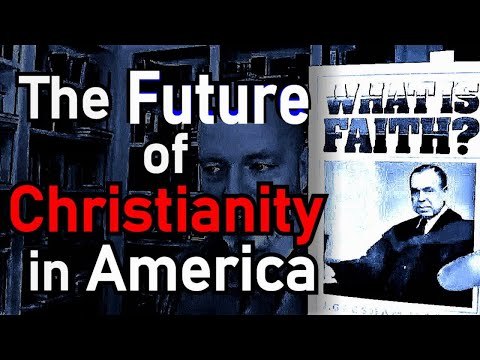
View On WordPress
#Christian faith#Christianity#God#J. Gresham Machen#Jesus Christ#pastor#presbyterian church#Presbyterians#Reformed churches#reformed minister#reformed pastor#reformed podcast#reformed preacher#reformed presbyterian#United States#usa
1 note
·
View note
Text
It took me a very long time to get there but these days my feeling is if homosexuality or gender variance makes someone so uncomfortable they can’t worship God among living breathing LGBT people, go on ahead and have your exclusively straight church.
I will consider it a forgivable sin against loving your neighbor, but not worth conflict anymore, since we have our spaces now and keep making more room for others in some of the largest denominations in the country. It’s not going to go backwards now. We’ve got The Episcopal Church, Presbyterian USA, Evangelical Lutherans and the United Methodists are getting close, not to mention a lot of smaller Christian denominations and non-denominational churches.
It’s a better situation than I grew up in, for sure, even if the fundamentalists keep ranting about it. I’m too busy worshiping and loving my parish to respond to ranting.
But I do want to be loud enough to scoop up any young alienated gay people from the remaining anti-gay churches so they don’t have to suffer through what I did.
#goals#the frustrating thing is that everyone left the mainstream protestant denominations in the meantime while they were discerning#and now it's all older folks and empty pews#but eh we will go on#the Church has survived worse#Christianity#LGBTQ
3 notes
·
View notes
Text
Who Are You Following?
John Sawyer
Bedford Presbyterian Church
4 / 28 / 24 – Fifth Sunday of Easter
Psalm 133
Acts 18:1-11
1 Corinthians 1:10-18
“Who Are You Following?”
(The Kingdom, The Power, and The Glory)
Tim Alberta was at his father’s funeral. His father, who had been a faithful minister in the Evangelical Presbyterian Church – a denomination that is slightly different from our own – had died, quite suddenly, of a heart attack.
Alberta had grown up, admiring his father and listening to his father, preach and teach. Tim Alberta did not become a pastor like his dad, but he always thanked his father for helping to instill a deep faith within him. When Alberta became a political journalist after college, he wrote for some major publications. But, by the time of his father’s funeral in 2019, things were then as they are now: some publications are read and respected by some people and not by others. In fact, some of the things that Alberta had written in one journalistic ecosystem had made it onto a different media platform. And not in a good way. People on the opposite side of a particular political viewpoint had some negative things to say about him and his work as a journalist. Apparently, they felt that he did not cover “their person” in a positive enough light. So, when Alberta stood in the receiving line greeting people who had come to the funeral, there were people who had loved his father as a pastor and a leader, but who spoke ill of the younger Alberta to his face. It wasn’t exactly the kind of reception that one would want at a parent’s funeral.
As Alberta writes, these were people he had known and loved for years, who were now telling him (at his own father’s funeral in a church) how disappointed they were in him – just because his worldview did not match their own.
All of this was enough to cause some serious reflection on Alberta’s part and it ended up sparking the idea for a book. Alberta started investigating the ideas, and mindset, and worldview, and shifting perspective of his own people: Evangelical Christians. In his book, The Kingdom, The Power, and The Glory, Alberta describes how – as he believes – Evangelical Christians have lost their way in America. And, in reading the book, there’s part of me that says, well, thank goodness this book isn’t about us – meaning thank goodness this book isn’t about the Presbyterian Church USA or other so-called mainline denominations. At the same time, though, if one part of the already-divided Christian household is hurting or eating itself alive or falling apart, it has an impact on the rest of the Christian household. Besides, historically, we Presbyterians have not been conflict free. My heart goes out to the United Methodist Church during a time of great conflict, and my heart goes out to the Evangelicals as well. Our sisters and brothers who identify as Evangelical Christians might disagree with a lot of how we mostly-moderate Presbyterians do things, but hopefully we all do agree that we are called to faithfully follow Jesus – even though we all often have a hard time doing this (and have a hard time agreeing on what it means to faithfully follow).
Over the course of Alberta’s book, he finds people who are all asking the question: “Who are we following? Are we following Jesus or are we following someone else?” As Alberta writes, there have been some very powerful people over the years – pastors and other leaders in the church – who have been encouraging their followers to follow Jesus but who have viewed gaining political power on earth in God’s name as being more important than humbly attributing power to God. Do you see the difference, here?
As Alberta writes:
True power is not reflected in kingdoms, administrations, or campaigns, because these things are counterfeits of God’s original, supreme authority. The power to raise taxes is not the power to raise Jesus from the dead; the power to seat senators [or, I might add, Supreme Court Justices] is not the power to seat Jesus at the right hand of the Father. Every biblical reference to power – every prayer, every reflection, every instruction – affirms that God is all-powerful, and that to the extent that [God] vests that power in [human beings], it is to proclaim God’s kingdom, God’s power, and God’s glory.[1]
Not our own kingdoms or nations, not our own power, and not our own glory, but God’s kingdom, God’s power, and God’s glory.
Human beings should be cautious in claiming any divine power to accomplish anything for themselves or attaching divine power to those who hold earthly power. It’s not – and never should be – about us. It is all about God. And yet we sure are good at making it about us or about people that we like. . .
Who or what are we truly following? And are the ones we follow the ones we should be following? In today’s reading from Paul’s letter to the Corinthians, we see the church divided because different people are following various leaders. Apparently, there are different cults of personality.
The story really begins in today’s reading from Acts. Paul arrives in the city of Corinth, which is a coastal town in Greece, about 40 miles from Athens. When he arrives, as is his custom, he goes to the Jewish synagogue and talks to members of the Jewish diaspora, people who have made their way from Paul’s homeland all the way to Greece and have brought the Jewish religion with them. In the synagogue at Corinth, Paul talks to people about Jesus of Nazareth – a Jewish carpenter and teacher who, Paul believes, is the Messiah who has come to save not just Jews, but all people. Now, we heard last week, about Paul’s experience in Thessalonica, arguing the same thing in the synagogue and eventually being run out of town.
In Corinth, there is also some conflict in the synagogue. By the time some of Paul’s friends arrive, there are those in the synagogue who kick Paul out. So, Paul shakes the dust off his clothes and walks right next door to the synagogue – to the house of a man named Titius Justus and sets up shop there. Eventually, one of the leaders in the synagogue – a man named Crispus comes next door and becomes a follower of Jesus because of the movement of the Holy Spirit and Paul’s teaching.
By the way, just in case you’ve ever wondered, didn’t the disciples ever have jobs, or didn’t these people have to work for a living? In today’s story from Acts, we see an example of Paul getting a job in Corinth. Paul becomes a tent maker along with two Jewish refugees from Rome, Priscilla and Aquila. So, on Sabbath days and at other times, Paul is speaking, and preaching, and teaching. But the rest of the time, Paul is working with needle, and thread, and cloth. This concept of Pastor as tentmaker is something that we still see today. In the Presbyterian Church, when a pastor has a part time or full-time job in addition to their preaching and church leadership responsibilities, they are sometimes referred to as a tentmaker pastor. Anyway, Paul settles in into the town of Corinth. And, as the book of Acts tells us, he lives among them for at least a year and a half.
But, Paul isn’t the only follower of Jesus to make their way to Corinth. He might be one of the first, but after Paul leaves town, there are others who come. These are friends and colleagues of Paul, mostly. But a couple of them are people that Paul may have never met before.
Imagine, if you will, people hearing about Jesus from different perspectives, different voices, speaking the good news. For some people, certain voices might “speak” to them more clearly or be more easily understood. Or, some people may just like the person giving the message. Sometimes, people just connect with a certain person or style. Over the past twenty years, I have worked with some wonderful pastors as partners in ministry, and people have sometimes said, “Oh, I prefer Bill, or Jarred, or Karen, or John.” There’s nothing wrong with this, unless people start following the preacher instead of the One who is being preached about. This is what happens in Corinth.
So, as time goes on, Paul has continued on his travels and these other teachers and preachers have come through Corinth, and then Paul gets word that the church in Corinth is divided because different factions are following different teachers. And, getting this news – as Paul writes, from some people who know a woman named Chloe, a member of the Corinthian church – it sparks the idea of writing a letter to his old friends in Corinth.
“Who are you following?” Paul asks the Corinthians. “Because I’ve heard that some of you are saying, ‘I belong to Paul,’ or ‘I belong to Apollos,’ or ‘I belong to Cephas,’ or ‘I belong to Christ.’ Is Christ divided? Was I crucified for you? Were you baptized in my name?” (Acts 1:12-13)[2] The answer to all-of-the-above is “No.”
Christ is not divided. We are. This is why Paul gives the Corinthians – and all who read these words, thousands of years later – this challenge, as Eugene Peterson translates:
I have a serious concern to bring up with you, my friends using the authority of Jesus, our Master. I’ll put it as urgently as I can: You must get along with each other. You must learn to be considerate of one another, cultivating a life in common.[3]
For Paul – and for us – this common life is centered around the person of Jesus Christ and the power of his gracious good news. We follow the One whose great and loving power was revealed in weakness. . . Paul says that he has come to proclaim the power of the cross of Jesus Christ. As he writes just a few verses later,
“. . . we proclaim Christ crucified, a stumbling block to [some] and [utter] foolishness to [others]. . .” (1:23) “But God chose what is foolish in the world to shame the wise; God chose what is weak in the world to shame the strong; God chose what is low and despised in the world – things that are not – to reduce to nothing things that are. . .” (1:27-28)
In other words, in all of the kingdoms and nations of the world, in all of the palaces and political structures of the world, there is no kingdom, or power, or glory greater than the love of Jesus Christ, who showed God’s great power by giving it away freely – not holding onto it.
So, whether we are evangelicals or exvangelicals,[4] whether we are Roman Catholics or Recovering Catholics, whether we are Presbyterian Church (USA), or Evangelical Presbyterians (EPC), or Presbyterian Church in America (PCA), or Fellowship of Presbyterians (FOP), or Evangelical Covenant Order of Presbyterians (ECO), or Covenant Presbyterians, or Free Presbyterians, or More-Light Presbyterians, or some other designation based on difference. . . who are we following, really?
As Alberta writes,
“. . . What if we laid down our defense mechanisms? What if we reframed our relationship to creation, to our neighbors, to our enemies, in ways that are more closely aligned to the Sermon on the Mount? What if we were willing to lay down our power and our status to love others, even if that comes at a cost to ourselves?” // Laying down our status and loving others sounds to many American Christians like a recipe for leaving the Church vulnerable. But in fact, nothing could make it stronger.[5]
To whose kingdom, whose power, and whose glory do you pledge your allegiance? In whose wounded and loving hands do you place your life, and faith, and devotion? Whose Holy cause of justice, and unity, and love guides your thinking and living?
Who are you following?
In the name of the Father, and of the Son, and of the Holy Spirit. Amen.
-------
[1] Alberta, Tim. The Kingdom, The Power, and The Glory: American Evangelicals in an Age of Extremism (New York: HarperCollins Publishers, 2023) 255-256.
[2] Paraphrased, JHS.
[3] Eugene Peterson, The Message: Numbered Edition (Colorado Springs: NAV Press, 2002) 1565.
[4] https://en.wikipedia.org/wiki/Exvangelical.
[5] Alberta, 427. Alberta is quoting, in part, the words of Nick Olson, a professor at Liberty University.
0 notes